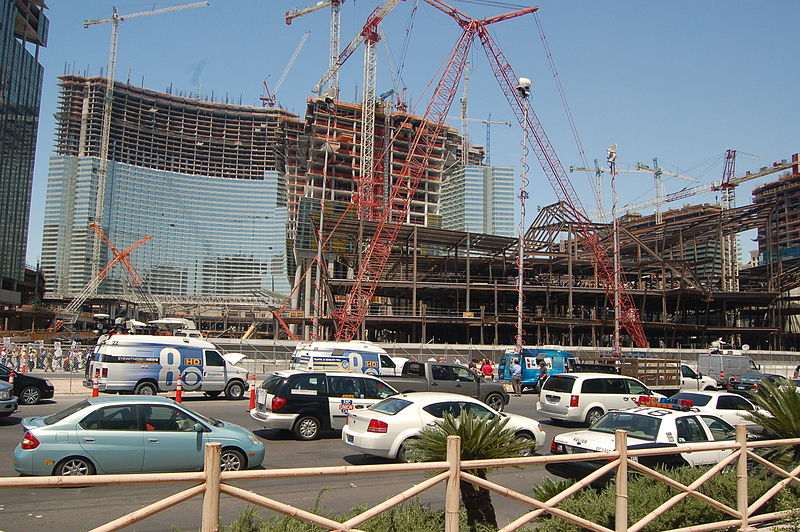The Design-Build Institute of America (DBIA), the only organization that defines, teaches and promotes best practices in design-build, has released new research findings indicating that for the first time more than half of projects above $10 million are being completed through design-build project delivery.
The newly released study confirms that the use of design-build has remained steady since its growth spurt at the end of the last decade, and also that Oregon and the Military sector are leading with the most dollars being spent on design-build projects.
“The growing use of design-build is not surprising,” says Lisa Washington, CAE, CEO/Executive Director of DBIA. “Throughout the last five years, and even through the recession, we’ve seen a large increase in demand for information and training on design-build best practices. Owners from all sectors have been turning to design-build delivery because they recognize the inherent value it brings to any project in any sector of any size.”
Shortly before the economic downturn a little over five years ago, the use of design-build spiked from 29% of the nonresidential market in 2005 to 36% in 2008. Throughout the recession period, design-build use continued to grow, and now with the economy stable and slowly recovering, the use of design-build has held steady at around 40% for the last three years.
RSMeans analyzed detailed data on nearly a million construction projects, state by state, and found that the West Coast is where design-build is the most prevalent. In fact, 70% of construction dollars being spent in Oregon are on design-build projects. California is the second highest at 59% and Washington the third highest state at 56%.
When looking at specific sectors, the military uses design-build on 81% of projects. However, even when military projects are taken out of the equation, Oregon is still the top state due to multifamily residential and industrial sectors’ preference for design-build. Those two industries also lift Michigan to the second place spot in the list of states doing the most non-military design-build.
“The Reed/RSMeans segmentation analysis now includes nine complete years of actual history, statistically supporting observation of trends at the state and industry sector segment levels,” says Tim Duggan, Director of Custom Solutions, Reed/RS Means, one of North America’s largest information providers to the design and construction industry.
RSMeans’ proprietary database of historical and planning construction projects data served as the basis for the study in addition to the incorporation of other publicly and privately available data sources. A copy of the full report, “Design-Build Project Delivery Market Share and Market Size Report,” is available on DBIA’s web site.
Related Stories
| Aug 11, 2010
Installation work begins on Minnesota's largest green roof
Installation of the 2.5 acre green roof vegetation on the City-owned Target Center begins today. Over the course of two days a 165 ton crane will hoist five truckloads of plant material, which includes 900 rolls of pre-grown vegetated mats of sedum and native plants for installation on top of the arena's main roof.
| Aug 11, 2010
AASHE releases annual review of sustainability in higher education
The Association for the Advancement of Sustainability in Higher Education (AASHE) has announced the release of AASHE Digest 2008, which documents the continued rapid growth of campus sustainability in the U.S. and Canada. The 356-page report, available as a free download on the AASHE website, includes over 1,350 stories that appeared in the weekly AASHE Bulletin last year.
| Aug 11, 2010
AECOM, Arup, Gensler most active in commercial building design, according to BD+C's Giants 300 report
A ranking of the Top 100 Commercial Design Firms based on Building Design+Construction's 2009 Giants 300 survey. For more Giants 300 rankings, visit http://www.BDCnetwork.com/Giants
| Aug 11, 2010
AIA approves Sika Sarnafil’s continuing education courses offering sustainable design credits
Two continuing education courses offered by Sika Sarnafil have been approved by the American Institute of Architects (AIA) and are now certified to fulfill the AIA’s new Sustainable Design continuing education requirements.
| Aug 11, 2010
HNTB, Arup, Walter P Moore among SMPS National Marketing Communications Awards winners
The Society for Marketing Professional Services (SMPS) is pleased to announce the 2009 recipients of the 32nd Annual National Marketing Communications Awards (MCA). This annual competition is the longest-standing, most prestigious awards program recognizing excellence in marketing and communications by professional services firms in the design and building industry.
| Aug 11, 2010
'Flexible' building designed to physically respond to the environment
The ecoFLEX project, designed by a team from Shepley Bulfinch, has won a prestigious 2009 Unbuilt Architecture Design Award from the Boston Society of Architects. EcoFLEX features heat-sensitive assemblies composed of a series of bi-material strips. The assemblies’ form modulate with the temperature to create varying levels of shading and wind shielding, flexing when heated to block sunlight and contracting when cooled to allow breezes to pass through the screen.
| Aug 11, 2010
New book provides energy efficiency guidance for hotels
Recommendations on achieving 30% energy savings over minimum code requirements are contained in the newly published Advanced Energy Design Guide for Highway Lodging. The energy savings guidance for design of new hotels provides a first step toward achieving a net-zero-energy building.
| Aug 11, 2010
Perkins+Will master plans Vedanta University teaching hospital in India
Working together with the Anil Agarwal Foundation, Perkins+Will developed the master plan for the Medical Precinct of a new teaching hospital in a remote section of Puri, Orissa, India. The hospital is part of an ambitious plan to develop this rural area into a global center of education and healthcare that would be on par with Harvard, Stanford, and Oxford.
| Aug 11, 2010
Burt Hill, HOK top BD+C's ranking of the nation's 100 largest university design firms
A ranking of the Top 100 University Design Firms based on Building Design+Construction's 2009 Giants 300 survey. For more Giants 300 rankings, visit http://www.BDCnetwork.com/Giants







